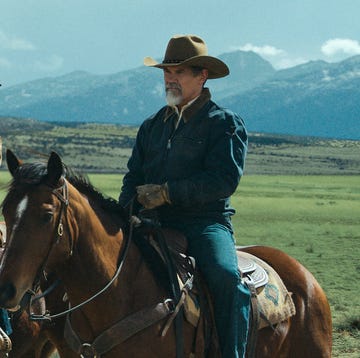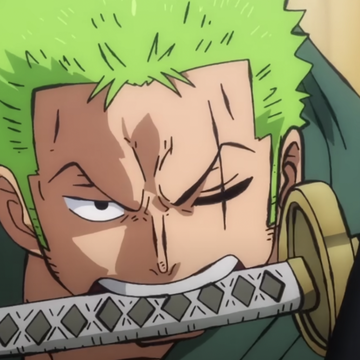The final season of the gangster drama television show, Peaky Blinders, dropped its final season on Netflix on June 10. However, the story isn’t over as a Peaky Blinder feature film is in the works.
Filled with tragedy, violence and revenge, the show picks up immediately from Tommy Shelby’s failed suicide attempt at the end of Season 5, to then having a four-year time jump.
Also starting off the six-episode season is a major loss for Blinder fans everywhere. Aunt Polly was killed off in the show due to Helen McCroy’s passing in real life. Honoring her legacy, Polly’s storyline finished with an emotional funeral send-off scene.
Another jaw dropping moment was the return of Alfie Solomon (Tom Hardy). Coming back from the dead, it was revealed that Solomon created a new life for himself in Boston with a woman. Shelby and Solomon have one last sincere moment together in the season.
Also, word on the streets is that Gina's uncle, Jack Nelson is inspired by real-life American businessman, Joe Kennedy, the father of JFK and Robert Kennedy. "As ever with Peaky [Blinders], you look at history and you take real facts and fictionalize them,” Steven Knight told Den of Geeks. “There is a resonance with Boston, with senior politicians.” Well, here's everything we know about Jack Nelson's ties to Joe Kennedy.
Who Is Joe Kennedy?
Joseph Kennedy Sr. is best known for the political success of his descendants, especially his sons, JFK and Robert Kennedy. Born in Boston in 1888, Kennedy graduated from Harvard in 1912 with a degree in economics. He would go on to become a banker, a stockbroker, a real estate mogul, and an importer, before eventually finding his way into politics as the American ambassador to the UK between 1938 and 1940.
While Kennedy's methods of amassing his wealth have raised eyebrows, as he participated in what today we would likely call insider trading, and was accused of bootlegging, among other crimes. However, despite accusations, he was never convicted of any wrong-doing.
Is Jack Nelson Really Based on Joe Kennedy?
Steven Knight, creator of Peaky Blinders, confirmed to Den of Geek that Kennedy was an inspiration for Uncle Jack, but it doesn't take too much digging to see how much the two figures have in common.
Like Joe, Jack in Peaky Blinders is a Bostonian with significant political ties. In the show, Jack travels to England to buy import licenses for the top Scottish and Irish whiskey distilleries looking to do business in America at the end of Prohibition—a move directly out of Joe Kennedy's book. In real life, the businessman made significantly money off the import licenses he acquired for Haig & Haig Scotch whiskey, Dewar’s, and Gordon’s gin, among others, through his firm Somerset Importers, selling 150,000 cases of Scotch alone in its first full year in business. A decade later, Kennedy reportedly sold Somerset for $8.5 million (more than $140 million by today's rates)—money he used to help build the Kennedy dynasty.
However, Nelson is still a fictional character. While many suspect Kennedy of indulging in shady dealings, we can't say for sure whether or not he was involved in crime, especially on the level that Nelson is on the show. As Knight told Den of Geek, "As ever with Peaky [Blinders], you look at history and you take real facts and fictionalise them." He added, "What really happened in the 1930s with these powerful people, is something that, as a writer of fiction, you wouldn’t dare to create because it’s so insane. So it’s trying to take some of that madness and chaos of reality and put it into the story.”
Questions Left Unanswered
The Biggest question living rent free in everyone’s mind is: Will Tommy Shelby make it through a Peaky Blinder’s movie?
As this season was ending in what seemed like another suicide attempt by Shelby holding a gun to his head, he had a vision of his late daughter, Ruby. She stopped him from his demise by telling him he was never sick and needed to continue to live. Coming to terms with the fact that Shelby’s doctor lied to him about being sick, revenge is granted to the fascists.












